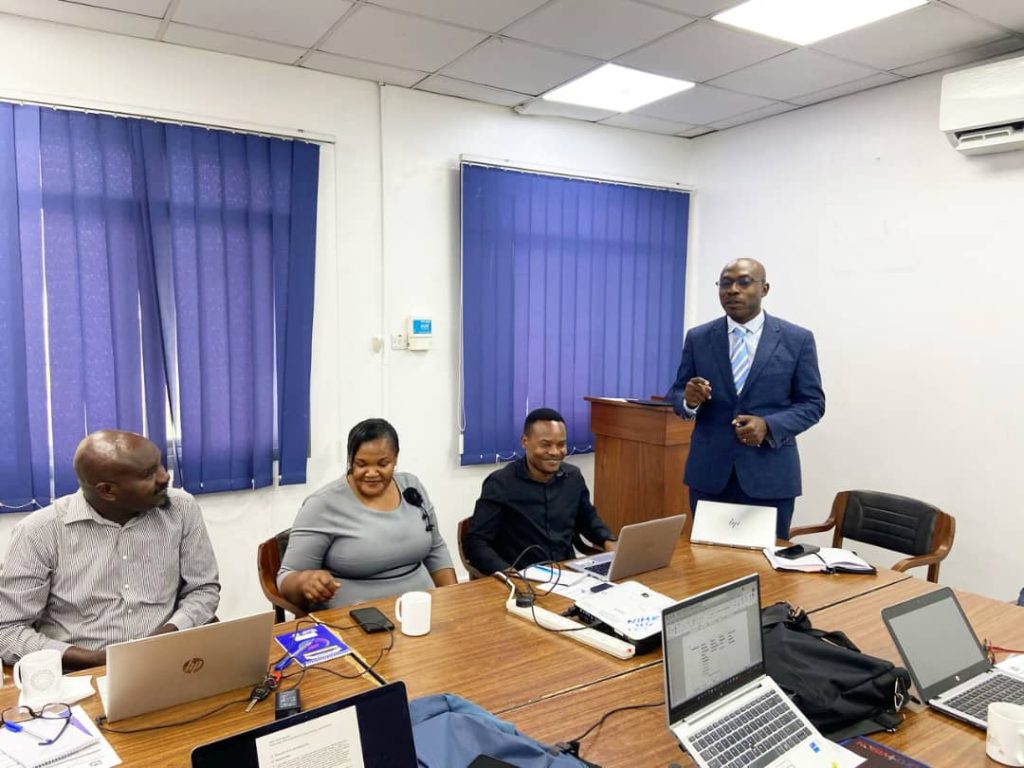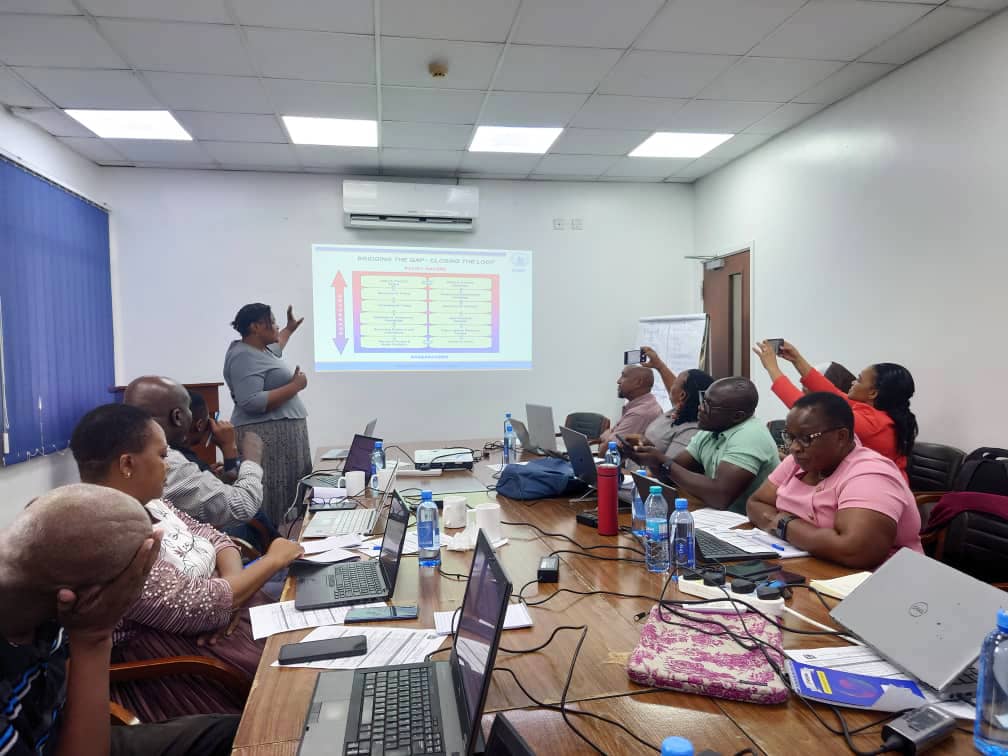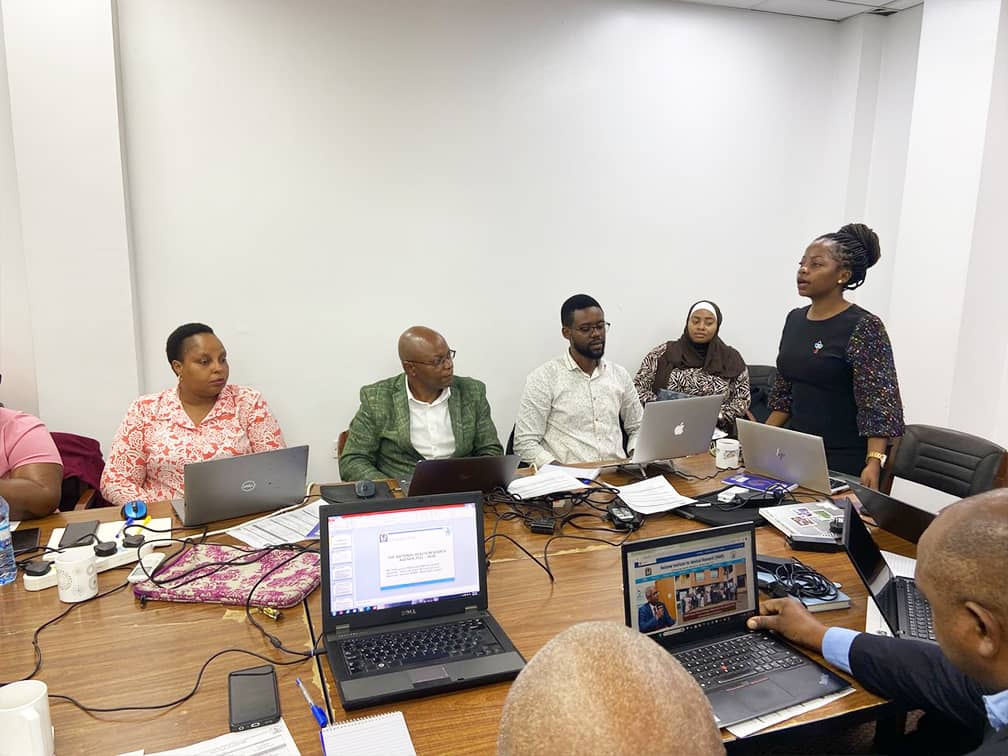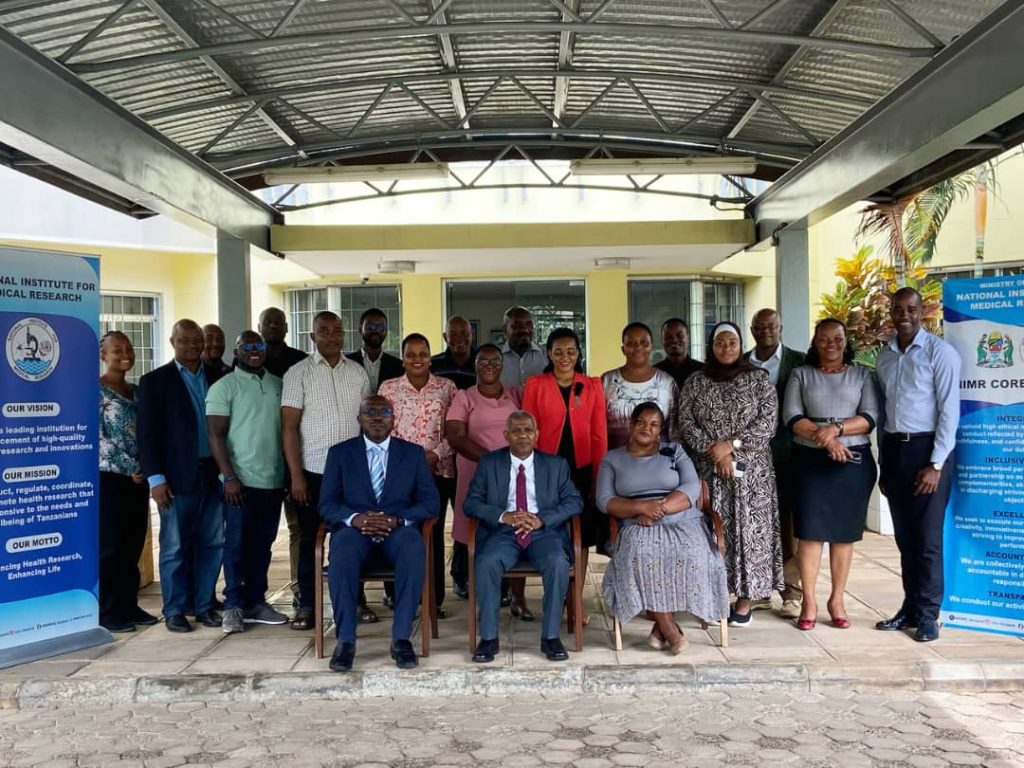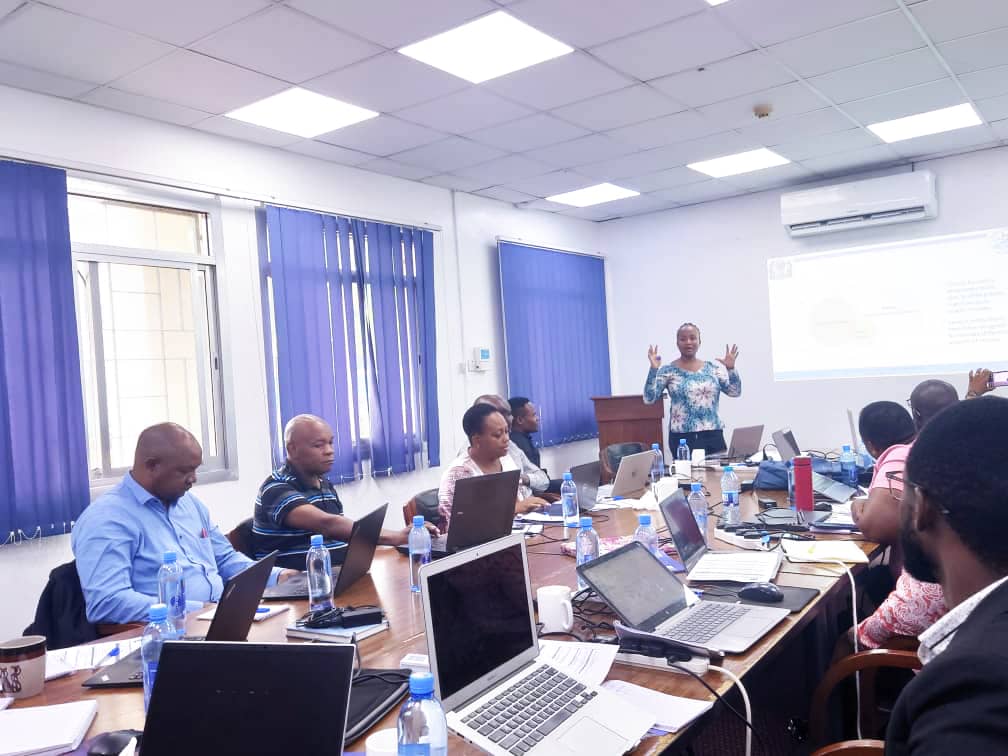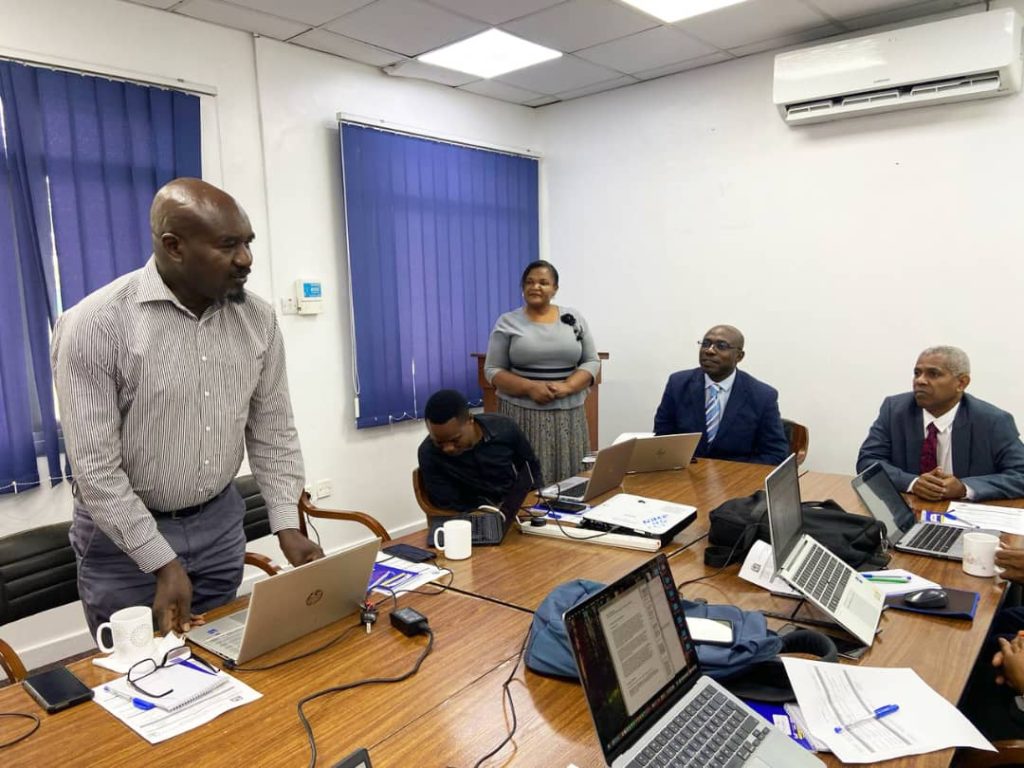In a significant step towards strengthening the translation of research into actionable policy, the National Institute for Medical Research (NIMR) convened a Policy Brief Development Workshop from 23rd to 25th April, 2025, at its Headquarters Sub-Office in Dar es Salaam. The event culminated in the successful development of high-impact policy briefs, reaffirming NIMR’s commitment to ensure that scientific evidence informs decision-making and health policies in the workshop.
The Workshop was officially opened by the Director General of NIMR, Prof. Said Aboud, who underscored the vital role of development of policy briefs in communicating research findings to policymakers. “Policy briefs are not just summaries, they are strategic tools that bring research to the table of decision-makers,” he commented
Prof. Aboud emphasized that NIMR is mandated to publish at least 400 scientific papers and 40 policy briefs annually representing 10% of the total publications. “I am pleased to report that in 2024, we met our target of 40 policy briefs” he announced, applauding researchers for their hard work and commitment.
To enhance publication output and collaboration, he urged NIMR researchers from centres and stations to collaborate and work together. He also reiterated the management’s support, highlighting that each research scientist is expected to produce at least two publications per year.
In a bid to recognize and inspire research excellence, Prof. Aboud proposed the launch of a Publication Challenge, which will reward the top three most productive research scientists. This initiative is expected to enhance motivation and foster a culture of high-quality research output across the institute.
He further endorsed the Policy Brief Challenge (PBC) proposed by Dr. Nyanda Ntinginya, Director of Research Coordination, and Promotion, signaling a renewed institutional focus on leveraging research for impactful policy engagement.
The workshop was coordinated by Dr. Elizabeth Shayo, who together with a team of facilitators, guided participants through the structured process of developing policy briefs from their ongoing research projects.
With a set of impactful policy briefs now ready for dissemination, NIMR continues to position itself at the forefront of transforming scientific evidence into policies that support Tanzania’s public health system and national development priorities.
The Workshop was officially opened by the Director General of NIMR, Prof. Said Aboud, who underscored the vital role of development of policy briefs in communicating research findings to policymakers. “Policy briefs are not just summaries, they are strategic tools that bring research to the table of decision-makers,” he commented
Prof. Aboud emphasized that NIMR is mandated to publish at least 400 scientific papers and 40 policy briefs annually representing 10% of the total publications. “I am pleased to report that in 2024, we met our target of 40 policy briefs” he announced, applauding researchers for their hard work and commitment.
To enhance publication output and collaboration, he urged NIMR researchers from centres and stations to collaborate and work together. He also reiterated the management’s support, highlighting that each research scientist is expected to produce at least two publications per year.
In a bid to recognize and inspire research excellence, Prof. Aboud proposed the launch of a Publication Challenge, which will reward the top three most productive research scientists. This initiative is expected to enhance motivation and foster a culture of high-quality research output across the institute.
He further endorsed the Policy Brief Challenge (PBC) proposed by Dr. Nyanda Ntinginya, Director of Research Coordination, and Promotion, signaling a renewed institutional focus on leveraging research for impactful policy engagement.
The workshop was coordinated by Dr. Elizabeth Shayo, who together with a team of facilitators, guided participants through the structured process of developing policy briefs from their ongoing research projects.
With a set of impactful policy briefs now ready for dissemination, NIMR continues to position itself at the forefront of transforming scientific evidence into policies that support Tanzania’s public health system and national development priorities.

